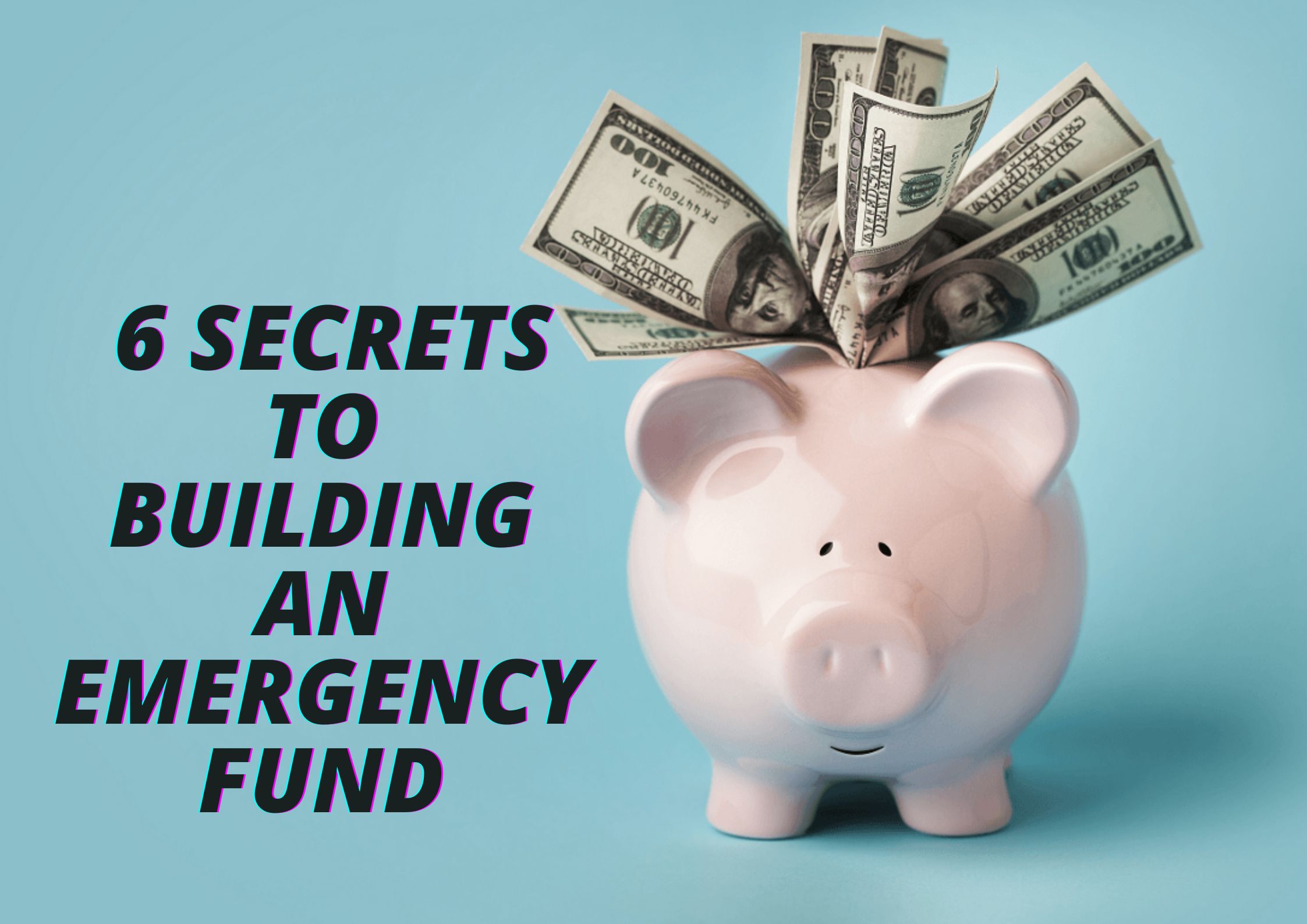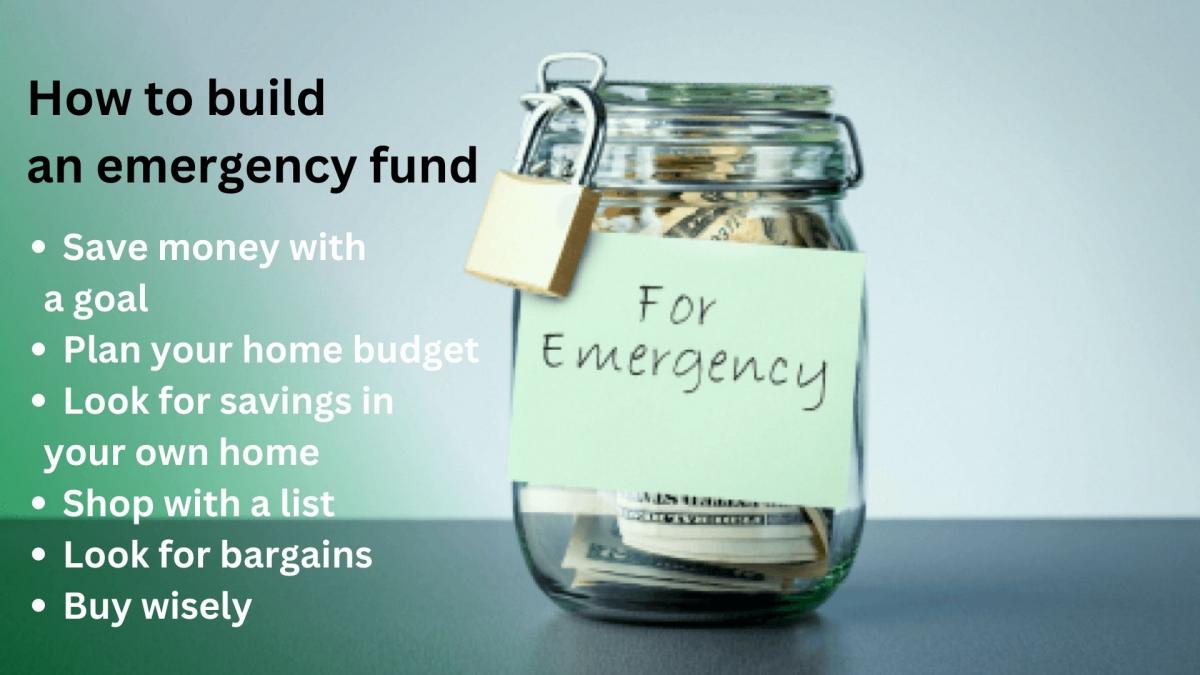Best Secrets to Building an Emergency Fund

It is never too late or too early to start saving money. Those who think that they have nothing to save on because no one is too poor to save, should also accumulate savings, and the money saved will be useful in a difficult situation or can be invested with profit!
Building an emergency fund - how to start?
Where should you start saving money? From realizing that it is worth doing and that it is not as difficult as it may seem at first. It is also not true that saving money is only for those who have something to save. No matter how much we earn and what expenses we have, there will always be something to save on (and it does not have to mean a drastic cut in costs).
Saving is a process in which regularity is much more important than putting aside a larger amount at once. What will help you start saving money is, among others set a goal for which you will spend these savings. If you do not have enough finances for basic needs, you can always get small loans.

1. Saving money with a goal
Being aware of what you are saving for, it will be easier for you to stick to a predetermined financial plan. It is also important to set a time horizon, i.e. the assumption that you will throw a specific, fixed amount, e.g. $ 20, into a piggy bank or a separate account every month, in order to collect a certain amount on a specific date.
Why is the goal important? If you do not specify it (giving yourself a specific time to implement it), you can quickly lose enthusiasm and persistence, stating that saving is pointless. Therefore, choose something for which you will spend the amount set aside. Adjust this goal to your financial capabilities and the general condition of your home budget. Such a short-term goal may be, for example, buying a dream trip, apartment renovation, language course, dance lesson, etc., and long-term saving for a child and providing him with a dignified start into adult life or saving for retirement. Setting a saving goal and setting a date when you can collect a certain amount is the best way to learn to save money. The statement that a good plan is the basis applies also in this case.
2. Plan your home budget
Before you start saving money, make a careful analysis of your home budget. To get out debt Think about how much you can save, whether there are expenses that you can give up and whether later you will have how to multiply the savings you have already accumulated.
Take a piece of paper and a pen, write down how much you earn per month, and estimate your expenses (also include these variables). Thanks to this analysis, you will find out how much you can save.
Save money permanently in your home budget. If you run it scrupulously, you can include the amounts you spend on saving on the expenditure side. It is a sum that "charges" the home budget every month and is no longer part of the pool of free funds that you can freely dispose of. If you want, you can accumulate your savings in an automated manner, e.g. by setting up a standing order at the beginning of the month. Thanks to this, as soon as the money reaches your account, the bank will immediately transfer it to the savings account.
3. Look for savings in your own home
The best way to save money is to look for such savings in your "own backyard". How to save money at home? Where to start? From savings on utilities, to choosing a more favorable tariff or a provider that offers better conditions. The economical use of utilities also includes turning off the light, using energy-saving light bulbs, reducing water consumption by selecting the eco function in taps, dishwashers, and other household appliances, as well as turning off the tap while brushing your teeth or shaving. If you are not using a given device - turn it off, take a shower instead of a bath, etc. Of course, these are just a few examples of how to save money.
4. Shopping with a list
When thinking about how to save money, apply the rule of small steps and start with the little things. First of all, go shopping with the list prepared in advance and ... stick to it. Do not go shopping with an "empty stomach", because then you will spend more and put a lot of unnecessary products in the basket, and do the larger ones once a week.
5. Bargains
Another way to improve financial situation is by looking for bargains, i.e. buying at sales and promotions. You can also save on pleasures. And so, instead of going to the cinema on the weekend, when tickets are more expensive, go to it during the week, using cards and discount programs. It is similar to summer trips: if you are going on vacation, plan it well in advance to take advantage of attractive offers. It is also a good idea to go on holiday off-season when the prices are much lower.
6. Buying wisely
How else can you save money?! Before you spend money on a given thing, think about whether you really need it and whether you can afford it. If you know that you are wasteful by nature, you can leave the card at home and take with you only as much money as you plan to spend.
Saving only at the beginning may seem like a sacrifice and quite a challenge. As long as you set realistic goals for yourself, you will quickly find out that systematic saving is not that difficult. As time passes, it will become so routine that you will stop worrying about it.